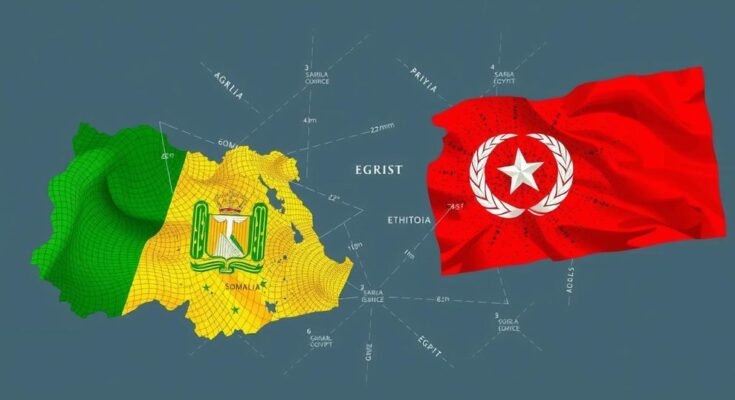Turkish and Egyptian officials held discussions on regional stability in Africa amid ongoing tensions between Ethiopia and Somalia. Their talks aimed to establish security in the Horn of Africa and support Somalia’s military efforts against terrorism. They also addressed the situation in Libya, agreeing to continue dialogues for the benefit of the Libyan people, marking a shift towards improved relations between the two countries after years of hostility.
Turkish and Egyptian officials engaged in productive discussions on Monday concerning the political and security landscape in Africa, particularly focusing on the ongoing tensions between Ethiopia and Somalia. These talks, which marked a significant movement towards improved relations between Egypt and Turkey, were led by Egypt’s Assistant Foreign Minister for African Affairs, Ihab Awad, and Elif Ulgen, General Director of Eastern and Southern Africa at Turkey’s Ministry of Foreign Affairs. The discussions, as confirmed by the Egyptian foreign ministry via Facebook, emphasized collaborative efforts to ensure the security and stability of the Horn of Africa, along with stabilizing shipping operations in the Red Sea. Both nations expressed their commitment to bolstering cooperation at various levels to achieve mutual objectives within the region, particularly in supporting Somalia in combating terrorism and enhancing its national military capabilities. In addition to the discourse on the Horn of Africa, the talks also covered Libya, where both countries agreed to maintain a dialogue aimed at serving the interests of the Libyan populace. Historically, Egypt and Turkey have backed opposing factions in the Libyan conflict; yet, they show united support for Somalia. Recently, Turkey entered into a landmark defense agreement with Somalia, pledging to patrol and safeguard its maritime territories. Egypt similarly has established a military cooperation agreement with Somalia to dispatch troops as part of a broader African peacekeeping initiative. This Egyptian undertaking may be perceived as a countermeasure against Ethiopia, especially following allegations from Ethiopia that Somalia interfered in its affairs after a maritime agreement was struck with Somaliland. Furthermore, the long-standing dispute between Egypt and Ethiopia regarding the latter’s construction of the Grand Ethiopian Renaissance Dam on the Nile continues to evoke concern in Cairo over potential water shortages. President Abdel Fattah al-Sisi of Egypt made a notable visit to Turkey last September, renewing ties after years of discord stemming from Sisi’s ascent to power following the military coup against President Mohammed Morsi in 2013. Reports earlier in the year indicated Turkey’s interest in mediating the dispute between Egypt and Ethiopia, showcasing a potential shift towards diplomatic resolutions.
The discussions between Turkey and Egypt occur against a backdrop of historical tensions, particularly regarding their involvement in Libya and Ethiopia’s actions in the Horn of Africa. Egypt has long been wary of Ethiopia’s Grand Renaissance Dam, fearing adverse impacts on its Nile water supply. The evolving dynamics between Egypt and Turkey suggest a notable shift towards cooperation amid these regional conflicts, highlighting both nations’ interests in stabilizing the volatile Horn of Africa and enhancing their influence there.
In summary, the recent talks between Turkey and Egypt underscore a historical shift towards cooperation in addressing regional challenges, notably the Ethiopia-Somalia dispute and the Libyan conflict. Both nations reaffirmed their commitment to enhancing stability in the Horn of Africa while supporting Somalia against terrorism. As their relationship evolves, the potential for joint engagements in regional security initiatives represents a significant development in Middle Eastern and African geopolitics.
Original Source: www.newarab.com




